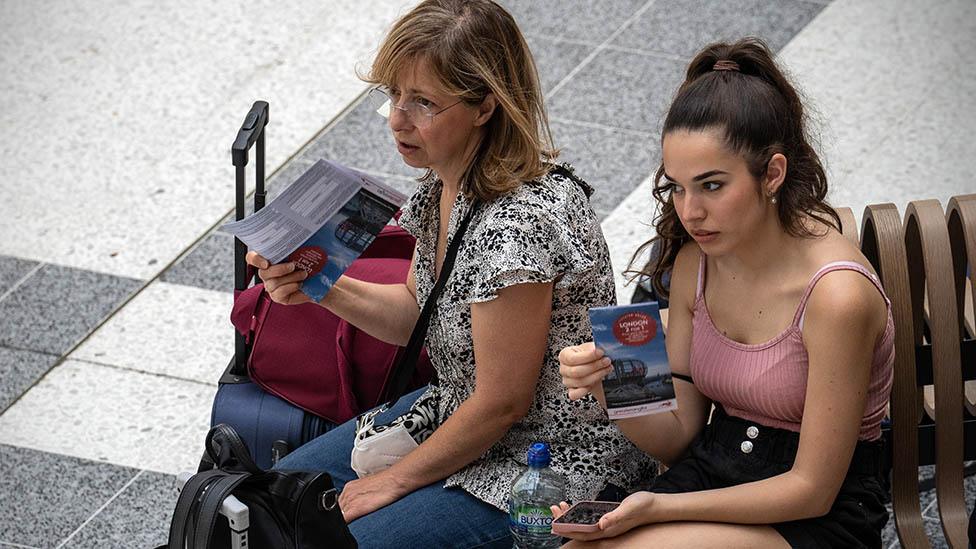Trains cancelled and delayed after heatwave damage
- Published
- comments
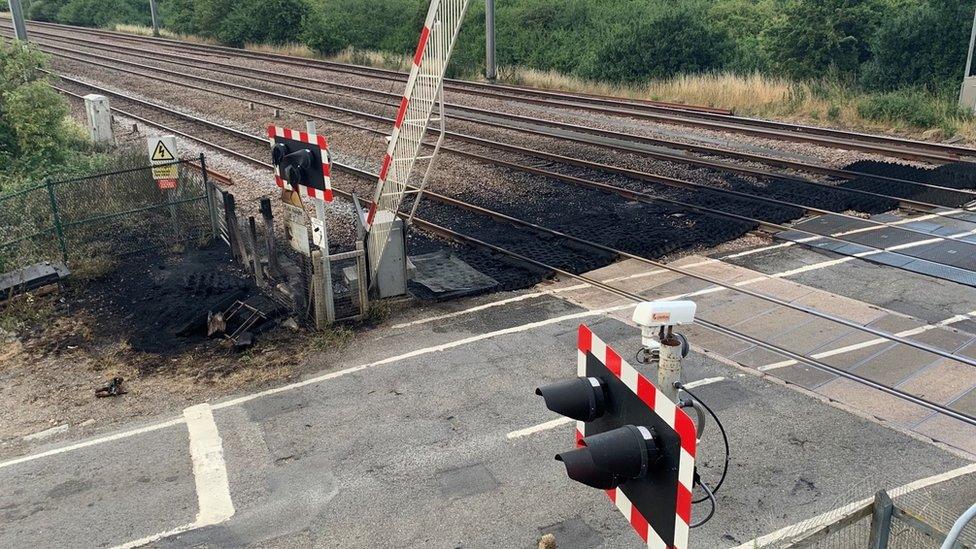
Network Rail said it's repairing the line after a fire on the route between Peterborough and London King's Cross.
Trains are being cancelled and rail services disrupted after the UK recorded its hottest day on record.
More than two dozen services leaving from London King's Cross and Euston stations were axed or delayed on Wednesday morning.
Network Rail urged passengers to check before they started their journeys and only to travel if absolutely necessary.
Disruption on East Coast Main Line continues, but trains are now running again between London and Scotland.
It comes after Tuesday's record-breaking temperatures above 40C, which caused damage to overhead electric lines and railway tracks.
Repair work is ongoing across the UK's rail network, and Network Rail said it has launched a new taskforce to investigate how the railway can become more resilient in the wake of the heatwave.
Services on the East Coast Main Line, which connects London and Edinburgh, were disrupted after a fire on the track near Sandy in Bedfordshire.
London North Eastern railway confirmed that after earlier cancellations, services began to operate to and from London King's Cross from midday, but it said trains will be "extremely busy".
Allow X content?
This article contains content provided by X. We ask for your permission before anything is loaded, as they may be using cookies and other technologies. You may want to read X’s cookie policy, external and privacy policy, external before accepting. To view this content choose ‘accept and continue’.
Network Rail, which owns and runs most of the train lines in Britain, warned passengers that journeys will take "much longer than normal" and could involve taking rail replacement buses, as work continues to repair the railway.
James Dean, Network Rail's West Coast South route director, apologised to passengers impacted by the disruption.
He added: "Specialist teams worked all night but have been unable to fix the cables in time for the start of service this morning. We're doing everything we can to get things back up and running.
"In the meantime, please check National Rail Enquiries before you set off on your journey as delays will continue today."
There are no trains
Katy Austin, the BBC's Transport Correspondent, at King's Cross station on Wednesday morning, said a notice up on departure boards stated there would be no trains from there until midday.
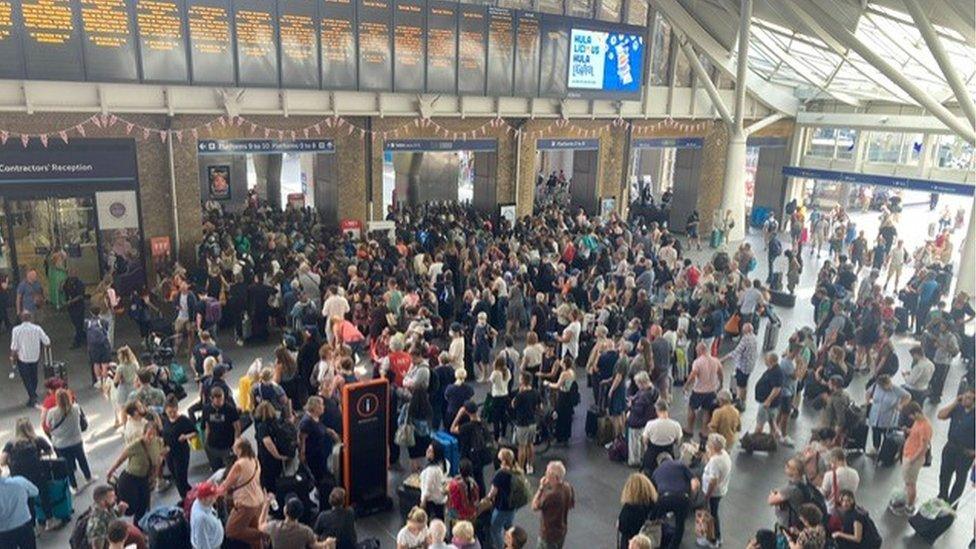
Passengers at King's Cross station faced further disruption on Wednesday.
She said plenty of people were waiting around on the concourse, as they tried to work out how and when they would be able to make their journeys. Some were trying to use tickets that were originally for Monday or Tuesday, only to find that they couldn't travel as expected today either.
Station staff were on hand, trying to help passengers with queries.
Similar disruption was seen at London Euston, where trains to and from Scotland have been cancelled.
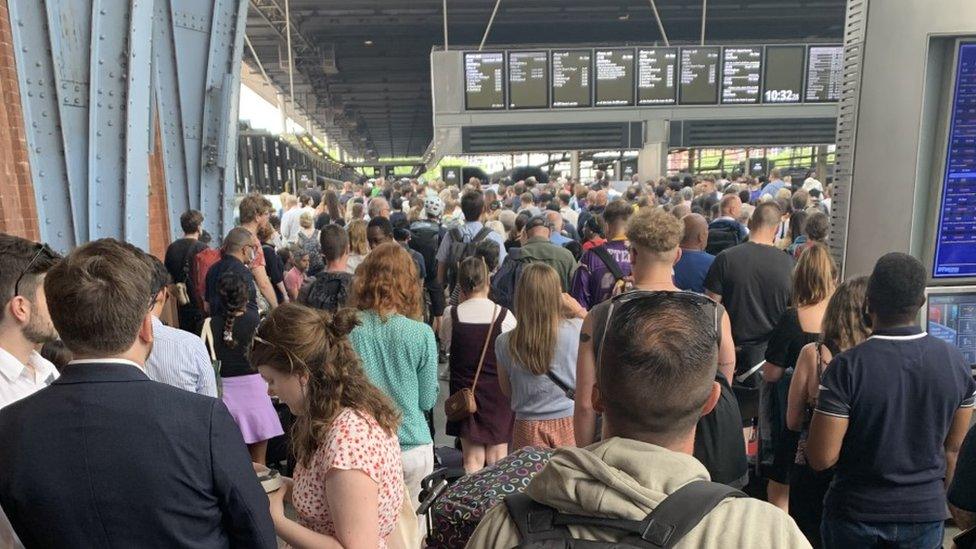
Passengers await further information at St Pancras station
It follows severe travel disruption on Tuesday, with most journeys scrapped through the Met Office's extreme heat zone, which covered much of central, northern, and south-east England.
The cancellations were due to the heat affecting the safety of steel railway tracks, which can buckle when too hot.
Railway speed restrictions were brought in across most of England and Wales, with reports of buckled tracks and overheard wire systems failing on Monday.
Trains that did run were mostly limited to speeds of 90mph, down from 100mph or 125mph, while some had to travel as slow as 20mph.
Related topics
- Published18 July 2022
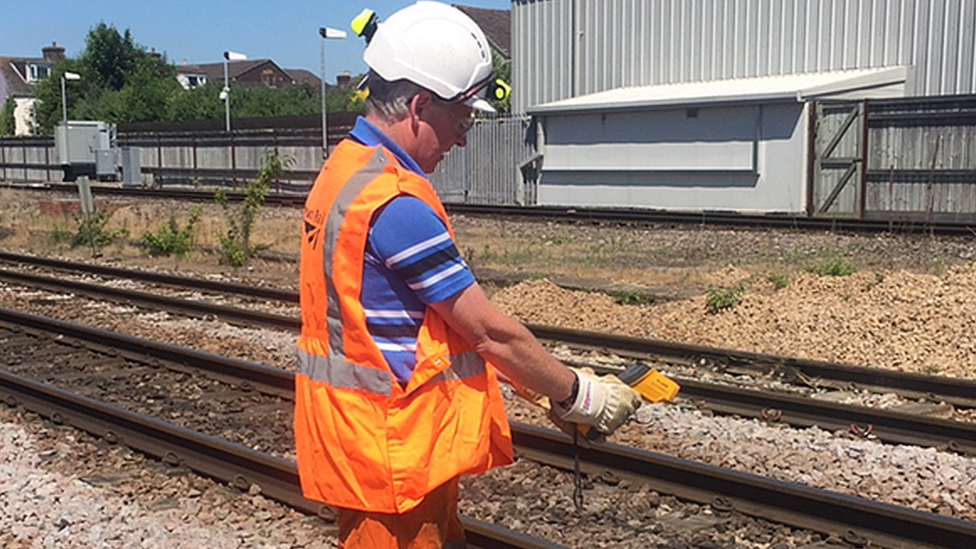
- Published19 July 2022
